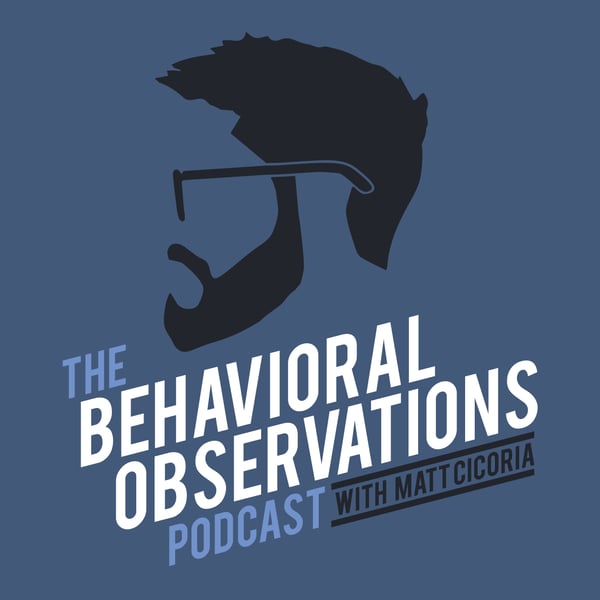In memoriam: Chuck Merbitz
The Behavioral Observations Podcast with Matt Cicoria
Matt Cicoria
4.8 • 648 Ratings
🗓️ 15 August 2019
⏱️ 82 minutes
🧾️ Download transcript
Summary
When I first interviewed Chuck Merbitz, he informed me that he had cancer, and that his case was terminal. You wouldn’t know that by listing to the conversation though. One of the things that struck me about that episode was just how positive Chuck was. The day after he passed away, I re-listened to the interview, and found so many nuggets of wise advice that had forgotten about. I suppose the main takeaway to this episode was the importance of working well with people outside of our field. So with that in mind, I urge you to give this episode another listen. Even if you’re not interested in precision teaching or starting a behavior analysis program at a university, there are lessons a-plenty to be found, particularly towards the end of the conversation. At some point, we may do an episode discussing his contributions to the field, but for now, let’s take a moment to hear his story again. Lastly, I have been in contact with his family, and they have provided me a list of causes that were important to Chuck. These include: Union of Concerned Scientists (very active on climate change) American Civil Liberties Union (fighting for human rights in the courts) Refugee and Immigrant Center for Education and Legal Services (RAICES) Move to Amend (to end corruption and secrecy in campaign financing) If you’d like to make a contribution in his honor, I have links to these organizations in this episode’s show notes. So without any further delay, please enjoy this conversation with Chuck Merbitz, and keep his loved ones in your thoughts. He will be missed indeed.
Transcript
Click on a timestamp to play from that location
| 0:00.0 | Hello, everyone. Some of you may already know this, but for those who haven't, |
| 0:06.0 | Session 63's guest, Dr. Chuck Mervitz, passed away in late July. When I interviewed him, |
| 0:11.3 | he informed me that he had cancer and that his case was terminal. But you wouldn't know by |
| 0:15.1 | listening to the conversation. One of the things that struck me about that episode was just how |
| 0:19.2 | positive Chuck was. |
| 0:26.5 | The day after he passed away, I re-listened to the interview and found so many nuggets of wise advice that I had forgotten about. |
| 0:32.2 | I suppose the main takeaway to this episode was the importance of working well with people outside our field. |
| 0:35.7 | So with that in mind, I urge you to give this episode another listen. |
| 0:38.4 | Even if you're not interested in precision teaching or starting a behavior analysis program at a university or anything else that we talk |
| 0:42.9 | about in the show, there are lessons of plenty to be found, particularly towards the end of the |
| 0:46.5 | conversation. At some point, we may also do an episode discussing his contributions to the field, |
| 0:52.0 | but for now, let's take a moment to hear his story again. |
| 0:55.2 | Lastly, I've been in contact with his family, and they've provided me a list of causes that |
| 0:59.8 | were important to Chuck. These include the following. The Union of Concerned Scientists, |
| 1:05.1 | the American Civil Liberties Union, the Refugee and Immigrant Center for Education and Legal |
| 1:09.8 | Services, and move to amend. |
| 1:12.4 | If you'd like to make a contribution in his honor, I have links to these organizations in this |
| 1:16.8 | episode's show notes. |
| 1:18.9 | So without any further delay, please enjoy this conversation with Chuck Mervitz and keep his |
| 1:22.9 | loved ones in your thoughts. |
| 1:24.4 | He will be missed indeed. |
| 1:27.6 | Dr. Chuck Mervitz, thank you so much for joining me today on the Behavioral Observations |
... |
Please login to see the full transcript.
Disclaimer: The podcast and artwork embedded on this page are from Matt Cicoria, and are the property of its owner and not affiliated with or endorsed by Tapesearch.
Generated transcripts are the property of Matt Cicoria and are distributed freely under the Fair Use doctrine. Transcripts generated by Tapesearch are not guaranteed to be accurate.
Copyright © Tapesearch 2025.

